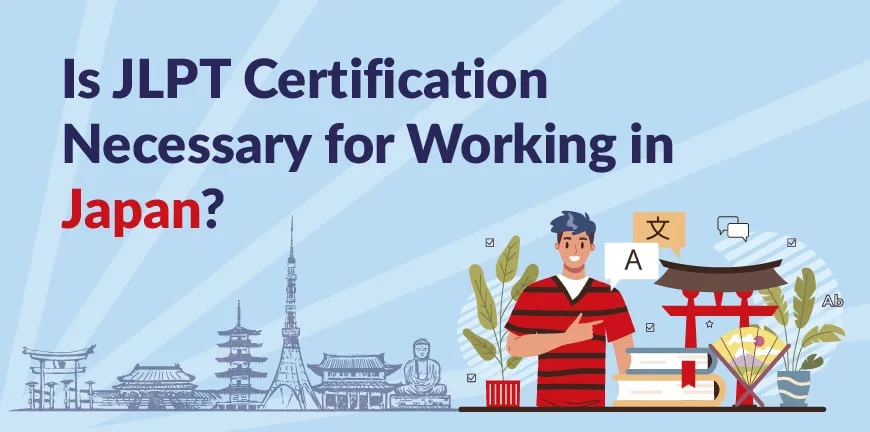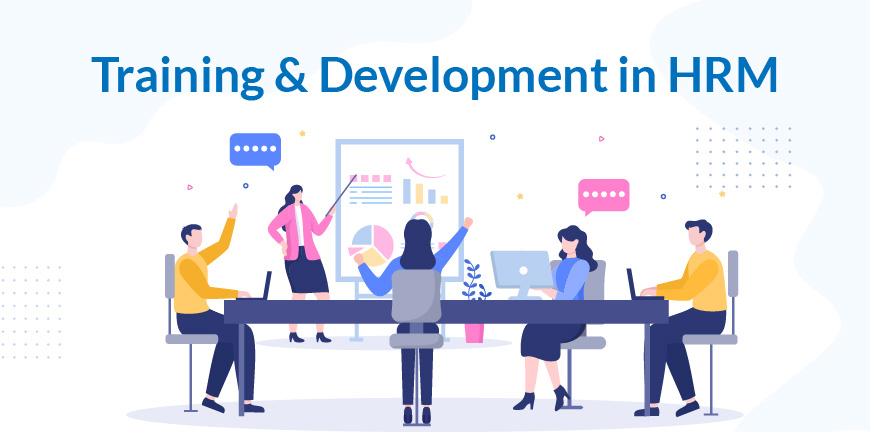
What Is Upskilling and Reskilling? Differences
27/06/2025
What is a Vendor Audit? Overview & Guide
04/07/2025- What is the JLPT Certification Exam?
- Who Can Take the JLPT?
- Is JLPT Certification Required for Jobs in Japan?
- Does JLPT Affect Visa Prospects?
- What are the Benefits of Having a JLPT Certificate?
- How to Apply for the JLPT in India?
- How will ALP help with JLPT and Job Offers?
- Frequently Asked Questions (FAQs)
Have you heard about the JLPT Exam? If you are an Indian working professional dreaming of a career overseas, with Japan being your top choice, or a fresh IT graduate looking for a career start directly in Japan, then you must pay attention here.
JLPT certification, especially N2 (Upper-intermediate level) and N1 (Advanced level) proficiency, can be a game-changer to increase your chances of landing a lucrative job in Japan. However, is it mandatory to get a JLPT certification to pursue a career in Japan? The answer to this lies in the details.
Let’s break down JLPT certification in terms of necessity, opportunities, visa initiatives, and career growth in Japan, and at the end, as a career aspirant, you can decide if JLPT certification is required or not!
What is the JLPT Certification Exam?
JLPT (Japanese Language Proficiency Test) is a benchmark Japanese language assessment exam used for evaluating Japanese language skills distributed across various levels for non-native job seekers. Typically, the JLPT exam opportunity is offered in July and December (two chances in a year). The exam is usually conducted offline in designated centres across India.
There are 5 levels in the JLPT exam, with each level being more difficult than the previous one.
- N5: Basic level: Basic level of understanding in Japanese.
- N4: Elementary level: The ability to understand Japanese better than the N5 level.
- N3: Intermediate level: Understanding Japanese for regular office and personal communication.
- N2: Upper-intermediate level: Able to comprehend & communicate in Japanese at a professional capacity. Typically, this certification is required to get hired in companies that have JD with a bilingual proficiency
- N1: Advanced level: The ability to communicate Japanese equivalent to a native speaker. Typically, this certification is paramount for pursuing managerial and C-Suite-level jobs.
Who Can Take the JLPT?
To take the JLPT exam, there is no other eligibility requirement other than being a non-native speaker. Typically, the JLPT exam is taken by students pursuing graduation and looking for a career in Japan or higher studies, professionals seeking a career overseas in Japan, or enthusiasts who wish to learn Japanese. Additionally, you can take the JLPT at any level, such as the N2 or N1 level, provided you can crack the exam. Also, there are no age restrictions like upper and lower limits placed to take the JLPT exams.
Is JLPT Certification Required for Jobs in Japan?
The requirement to possess a JLPT exam certificate is purely subjective. It depends on the job type and level. Some job roles require JLPT at a certain level, and some don’t require any language proficiency certification.
1. Jobs that don’t need JLPT
Here is the list of jobs that don’t mandate JLPT certification:
- Most English teaching jobs in centres like ALT, Eikaiwa, International Schools, etc., don’t require JLPT certification.
- Most tech companies that hire Indian IT engineers don’t ask for JLPT certification.
- Research roles in science, academia, biotechnology, etc., where English is the base language used, don’t require JLPT.
- Numerous MNCs established in Japan use English as a language medium between local and international teams.
2. Jobs that mandate JLPT
Here are the industries and scenarios that require JLPT N2 or N1 level certification:
- Hospitality industries, customer support, and retail sectors typically require N2 or N1 level proficiency to communicate with Japanese clients.
- Managerial and C-suite level jobs require N2 or N1 certifications.
- Doctors, nurses, and other staff working in the healthcare sector might require N2 or N1 for communicating with patients and other native medical professionals.
Does JLPT Affect Visa Prospects?
Some working visa programs in Japan don’t mention JLPT certifications as a mandatory requirement for getting visa approval. However, certain job roles might require JLPT lower-level certifications like N4 and N3 to get approval.
- Standard Employment visas don’t ask for JLPT certification as long as companies that offer jobs sponsor the visa program.
- Specified Skilled Worker (SSW) Visa programs for employees seeking jobs in nursing, construction, agriculture, food service, etc., require N4 or N3 level JLPT certification.
- A highly Skilled Professional (HSP) Visa offers a faster pathway to permanent residency in Japan with N1-level certification.
What are the Benefits of Having a JLPT Certificate?
1. Better Career Prospects
JLPT is considered a benchmark to prove Japanese language proficiency. Numerous MNCs and Japanese-based companies have N2 and N1 certifications as proof that a foreign professional is equipped to manage work seamlessly in a Japanese-speaking environment.
Additionally, JLPT certification gives added weightage to your resume, providing an edge against other internal competitors seeking a similar job role in your domain.
Moreover, JLPT will help international tech professionals communicate better with their Japanese counterparts to understand the requirements and develop solutions more efficiently.
2. Higher Salary
JLPT certification can help you earn more through better appraisal or get a higher salary package at the start when you make a career shift from India to Japan. Additionally, roles requiring bilingual ability will come with a higher salary package than English-only job positions. Moreover, some Japanese companies offer bonuses and incentives for employees who clear the N2 and N1 levels.
3. Smoother Workplace Communication
Through JLPT higher-level certification, employees can smoothly manage day-to-day communications. For JLPT-certified professionals, understanding email, internal bulletin boards, technical documents, MOMs, etc., will be without translator support.
Additionally, it helps in minimising miscommunication instances, which can lead to confusion & wrong delivery, resulting in reduced productivity and workplace disruption. Moreover, foreign employees can build rapport with their Japanese colleagues through native language usage, which will be difficult as the right emotions might not be conveyed properly in English.
4. Better Social Life
Japanese language proficiency can help you build a cosy social life since you can mingle with locals and blend with the culture more easily. Filling forms in banks, having small talks with neighbours, reading sign boards, talking to physicians, socialising with peers and friends, and other aspects will be carried out much better with Japanese language skills acquired through JLPT exam efforts.
How to Apply for the JLPT in India?
Here are the steps to apply for the JLPT entrance exam in India. Please note that the exam takes place twice a year in July and December and currently is done offline at registered centres spread across India.
1. Choose Test Level
Make a choice on the JLPT level (N5–N1) matching your current level of Japanese language training outcomes.
2. Visit the Official Website
Go to the JLPT India website of your nearest test centre location.
3. Create Applicant Account
Register your account on the test centre portal with your personal and contact details.
4. Fill Application Form
Complete the online form with level, centre preference, ID proof, and address.
5. Upload Photo and Documents
Upload a recent passport-size photo and required identification proof as instructed.
6. Pay Exam Fees
Make online payments via net banking, credit card, or specified payment gateway options.
7. Download Confirmation
Save and print your application confirmation receipt for future reference and verification.
8. Receive Admit Card
Download the admit card when available. Please check the details and carry the admit card on exam day.
How will ALP help with JLPT and Job Offers?
Directly enrolling in the JLPT exam without proper guidance and training may not be such a smart idea if you are serious about landing a lucrative job in Japan.
ALP Consulting, a leading bilingual recruitment company, offers an end-to-end career development program for aspiring Indian professionals and final-year grad students from Japanese N2-level training to cultural exposure, job interviews, visa and onboarding assistance for top Japanese clients.
The steps involved in ALP’s career development program in Japan include:
Step 1: Once a candidate completes the N4 level and graduates, ALP will offer 4-6 months of a detailed internship/apprenticeship program in India to give a first-hand experience on how to work in Japanese-based companies.
Step 2: Alp will provide N3-level JLPT training to help candidates reach professional communication in the Japanese language.
Step 3: Once a candidate clears the N3 level and completes the internship program, ALP will set up interviews with Japanese clients.
Step 4: Post selection, ALP will offer N2 level and cultural training paired with client-specific skills coaching during the visa processing period, which will be around 2-3 months.
Step 5: ALP will provide visa and onboard assistance to help candidates make a smooth transition into a new career and life in Japan.
Frequently Asked Questions (FAQs)
1. Is JLPT certification mandatory to get a job in Japan?
No, JLPT certification is a subjective requirement as it depends entirely on your role and employer requirements.
2. Which JLPT level is recommended for professional jobs in Japan?
JLPT N2 or N1 is typically preferred to prove advanced language proficiency for professional or managerial roles.
3. How does JLPT certification improve my career prospects in Japan?
It strengthens your resume, boosts salary potential, ensures smoother communication, and increases competitiveness in Japanese workplaces.
4. What visa programs require JLPT certification to work in Japan?
Specified Skilled Worker Visas need N4 or N3 certification, whereas Highly Skilled Professional Visas strongly favour N1-level proficiency for faster processing.
5. How does ALP Consulting support candidates in preparing for the JLPT and relocation?
ALP offers N3-N2 training, internships, job interviews, visa processing, and onboarding support for seamless relocation to Japan.
Contact Us For Business Enquiry

Suresh Ramkrishna
Suresh Ramkrishna is the Operations Manager at Alp Consulting Ltd., with over 30 years of extensive experience spanning recruitment operations, sourcing, supply chain management, and client relations. At Alp, he leads the Search & Staffing Practice, specializing in bilingual and niche skill hiring while overseeing Japanese language and TITP (Technical Intern Training Program) initiatives. He also manages NAPS (National Apprenticeship Promotion Scheme) training programs, fostering skill development and workforce readiness across industries. Previously, he spent over two decades in the apparel export industry, managing vendor development and international sourcing for top global brands. Suresh’s leadership blends strategic talent acquisition with operational excellence across diverse industries.




